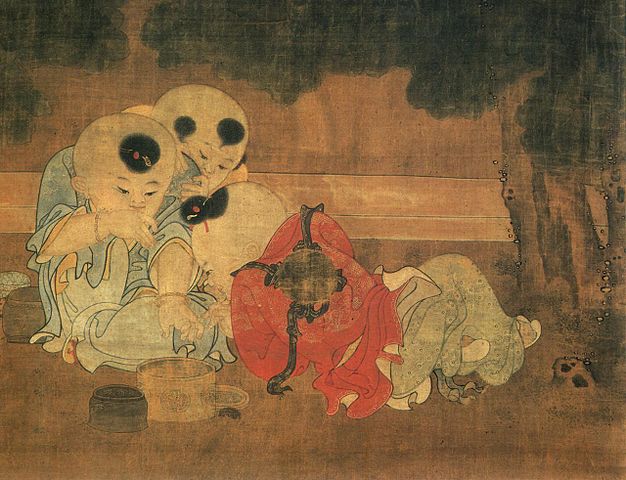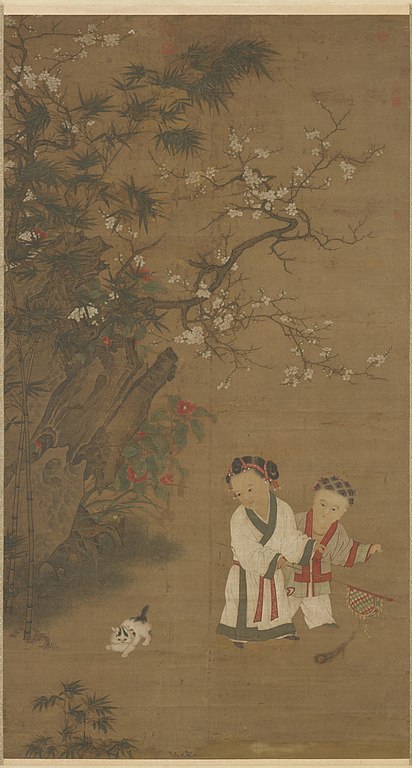
Thammasat University students who are interested in China studies, political science, sociology, economics, literature, culture, law, media and communication studies, environmental studies, international relations, cultural and social anthropology, public policy, intellectual history, and related subjects may find a newly available book useful.
Self as Method: Thinking Through China and the World is an Open Access book, available for free download at this link:
https://library.oapen.org/handle/20.500.12657/58659
The TU Library collection includes many other books about different aspects of the experience of youth in China.
As the publisher’s description of the book notes,
Despite China’s rise to the status of global power, many Chinese youths are anxious about their personal future, in large measure because the rapid changes have left them feeling adrift. This book, available in open access, provides a manifesto of intellectual activism that counsels China’s young people to think by themselves and for themselves. Consisting of three conversations between Xiang Biao, a social anthropologist, and Wu Qi, a rising journalist, the book probes how China has reached its current stage and how young people can make changes. The conversations touch on issues of mobility, education, family, relations between the self and the authority, centers and margins, China, and the world. The Chinese version was named the “most impactful book of 2021” by Douban, China’s premier website for rating books, films, and music.

The introduction begins:
Xiang Biao’s Self as Method is an unusual book. It was published in China in 2020 by Dandu, a newish publishing house that promises to “unite a new generation of authors and readers through text, audio, video, and multimedia platforms.” The project originated with Dandu editor Luo Danni, based on her observation that many Chinese people appear not to be very happy as “China’s century” dawns. At first glance, this may seem strange because, after a century and a half of humiliation, crisis, and struggle, China in the early twenty-first century seems poised to reestablish its historical position as a (if not the) center of the world. Reform and opening have succeeded beyond the wildest dreams of those who initially conceived the policies, and China in 2020 is vastly richer and more powerful than China in 1980. Yet despite China’s rise, many Chinese people, and particularly Chinese young people—while patriotic and proud of China’s rise—are anxious and dissatisfied, at least with their individual lives and life chances. If the policy of reform and opening has transformed the Chinese economy, it has also brought intense competitiveness, sky-rocketing real estate prices, long work days and weeks, and seemingly endless stress. Particularly in China’s mega-cities like Beijing and Shanghai, young people often feel like they are running in place—and running hard—as China’s period of high-speed growth threatens to sputter out. Luo Danni recruited Dandu journalist Wu Qi to work on the project, and decided to address this issue in a volume that targets younger readers, which surely made good sense. In addition to their economic anxieties, young people in China might be forgiven for feeling somewhat lost in general. Change in China has been blindingly rapid over the past few decades, to the point that Chinese authors often speak of generational groups of as few as five years (i.e., the “1995–2000 generation”). This might be an exaggeration, but it is nonetheless true that while in 1980 there were almost no private phones in China, today everyone lives on their smart phone; while in 1980, everyone rode their identical Flying Pigeon bicycle (if they could get one) to and from work or school, now they take a Didi (China’s Uber) to…the airport and hence the world (at least in pre-pandemic times). Of course many of these changes are broadly positive and have enriched the lives of Chinese youths. Other changes, however, have impoverished their lives in perhaps equal measure. China’s one-child policy, implemented between roughly 1980 and 2015, drastically reduced the size of Chinese families, particularly the extended families that have long been part of China’s social fabric. One wonders what percentage of today’s Chinese young people have no cousins at all, to say nothing of brothers and sisters. The demands of work have taken many parents out of the home, while still others have become “helicopter parents,” singularly focused on their only child. Schools have become places of intense competition, driven by a culture of testing and achievement.
How are young people meant to think about their lives, and where are they to turn for counsel and wisdom? A Chinese twenty-something might well live her non-work life through fan culture and online reality shows which her parents probably don’t “get,” to say nothing of her grandparents. Many teachers are run ragged by their own busy lives, and at school have to teach the “doctrine of success” to motivate students to keep their noses to the grindstone…
Self as Method is ultimately a kind of manifesto. It is addressed to young citizens of China—and the world—and it calls on them to examine their “selves,” not as consumers, not as profit-maximizing individualists, and not as part of a particular political or social movement. What Xiang Biao calls for is a kind of intellectual activism, grounded in the idea that in our global, wired universe, most people have the resources to understand their position in the various worlds they occupy, and on the basis of that understanding, to activate their agency to solve problems, thus making life better for individuals and communities. Because he is a scholar, Xiang’s particular means of activating his agency involves the tools of social science, which is a way of producing knowledge that might help others activate their agency, but he does not view scholarly agency and knowledge production as superior to the achievements of the entrepreneurs of Zhejiang Village, to take one example…
Self as Method is a call to China’s youth to build on the potential that China has created by starting with their “selves,” their individual lives and thinking brains. At many points in the book, Xiang notes that the distinctions between intellectuals and non-intellectuals—in China or in any technologically advanced society—have largely disappeared, because everyone has access to a universe of knowledge on their cell phone. Of course, the dangers of the digitized world, notably fake news and information bubbles, are much on our minds of late—and with good reason—but we should not discount the way in which increased knowledge and connectivity could enhance agency, should we make the choice to imbue this agency with a “gentry disposition.” It might be objected that this is a “manifesto without politics” and an “agency without public engagement,” which I think is largely true. There is no fruitful way for Chinese young people to craft a politics of direct resistance, however tired they may be of some aspects of Chinese political discourse and practice. There are similar frustrations with politics in the West, even if greater freedom of speech allows us to make more noise, which sometimes works. But Chinese people have displayed considerable energy and creativity as they have transformed their lives over the past few decades, which suggests that there is often, if not always, a way to employ one’s agency to improve conditions for the self and for the community, and the first step is an intellectual understanding of the potential of that agency within the constraints imposed by all social and political systems. The fact that 175,000 people bought Self as Method surely suggests that optimism and faith continue to exist in China, whatever the challenges Chinese people face. In that sense, Self as Method calls not for an abandonment of politics, but a redefinition of politics.

(All images courtesy of Wikimedia Commons)
